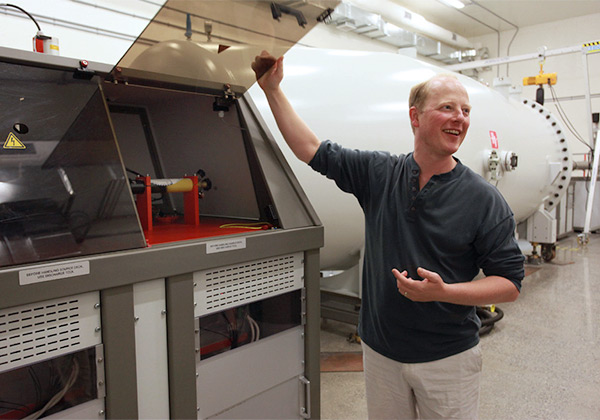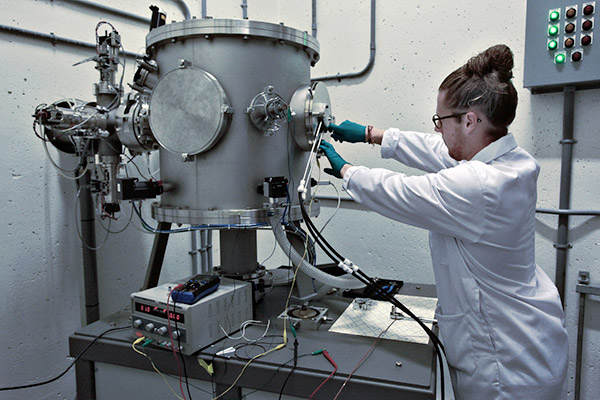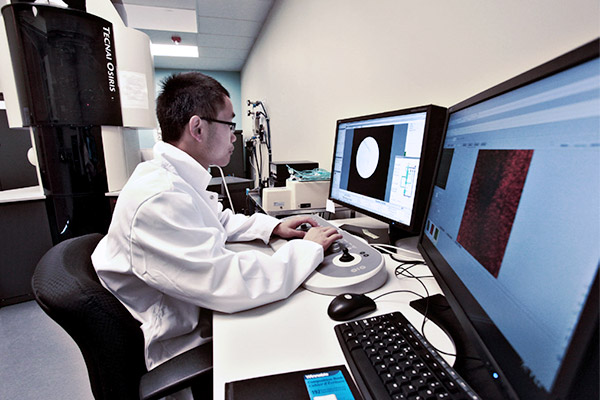The Materials Group within the Department of Mechanical and Materials Engineering studies the processing, structure, and properties of a wide range of advanced metal alloy systems used in industry (e.g., nuclear, automotive, aerospace), and conducts fundamental research into material behaviour.
The group’s expertise in material characterization is increasingly recognized internationally as a leader in Advanced Nuclear Materials, as evidenced by a large (~$18M) CFI/ORF/ Queen’s investment to create the Reactor Materials Testing Laboratory (RMTL). RMTL is a world-class facility (Figures 1 to 3) used by a Tier I Canada Research Chair who is also an UNENE Research Chair, as well as three new faculty hires.
The goal of this group is for Queen’s to grow from being arguably the leading academic institution for nuclear materials research in Canada to being one of the top three nuclear materials research academic institutions in the world. The research program investigates materials presently used within existing nuclear reactors as well as the development and optimization of new materials for both existing and new reactor designs.

An existing and emerging strength within Mechanical and Materials Engineering and the RMTL is the infrastructure and knowhow for advanced materials characterization techniques essential for research in nuclear materials, materials for automotive and aerospace applications, and advanced manufacturing techniques (e.g., additive manufacturing). This strength will grow with the addition of new equipment that will establish novel, high-demand characterization capabilities, and through the group’s collaborations with large-scale facilities developing cutting-edge technologies for probing materials. In synergy with experimental efforts, Queen’s expertise includes state-of-the art computer simulations that leverage its supercomputing infrastructure. In addition to the simulation of advanced materials for nuclear power, these computational capabilities include other advanced structural materials, such as next-generation mortars and cements, advanced high-strength automotive steels, and lightweight aerospace alloys.


Researchers in this group: